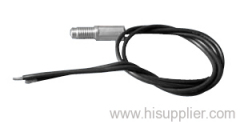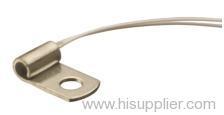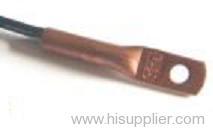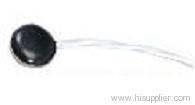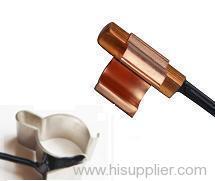
|
AMWEI Thermistor Co., Ltd.
|
PTC thermistor current protector
| Place of Origin: | Guangdong, China (Mainland) |
|
|
|
| Add to My Favorites | |
| HiSupplier Escrow |
Product Detail
PTC thermistors current protector, PTC thermistor resettable fuses, protect load against over-current, overload, short circuit. No need for replace.
Ceramic PTC (positive temperature coefficient) thermistors are used instead of conventional fuses to protect load, such as motors, transformers, or electronic circuit, against overcurrent for circuit protection. PTC thermistor protector not only respond to inadmissibly high currents but also if a preset temperature limit is exceeded. PTC thermistor over-current protector limits the power dissipation of the whole circuit by increasing their resistance and thus reducing the current to a harmless residual value. In contrast to conventional fuses, PTC thermistor resettable fuses do not have to be replaced after elimination of the fault but resume their protective function immediately after a short cooling-down time.
PTC Thermistor Over-current Protector Application
It applies in the over-current overload and short circuit protection of transformers, battery charger, switches, switch power supply, adaptor, meter, instrumentation, apparatus, electronic coils, control panels, air conditioner, automotive electron, etc.
Operating Principle of PTC Thermistor for Overload Over-current Protection
When a circuit is in the normal status, the current through PTC is lower than the rated current and PTC thermistor protector is in the normal state with small resistance value, which will not affect the normal operation of the protected circuit. In case of some fault in the circuit and the current is greater than the rated current, the PTC thermistor protector will become hot quickly and present a high resistance state, which sets the circuit relatively "off" to protect the circuit from damage. After the fault is removed, PTC thermistor protector will automatically restore its low resistance state and the circuit will resume normal operation.
Normally, when PTC thermistor is used as an overcurrent protection component, it is preferred to select maximum operating current, maximum operating voltage and proper specifications. Furthermore such factors should be taken into consideration as the dimensions of the components, rated zero-power resistance, operating temperature range, etc.
Didn't find what you're looking for?
Post Buying Lead or contact
HiSupplier Customer Service Center
for help!

.jpg)
.jpg)
.jpg)
.jpg)
.jpg)
.jpg)
.jpg)
.jpg)
.jpg)
.jpg)
.jpg)
.jpg)
.jpg)
.jpg)
.jpg)
.jpg)
.jpg)
.jpg)
.jpg)
.jpg)
.jpg)
.jpg)
.jpg)
.jpg)
.jpg)
.gif)
.gif)
.gif)
.jpg)
.jpg)
